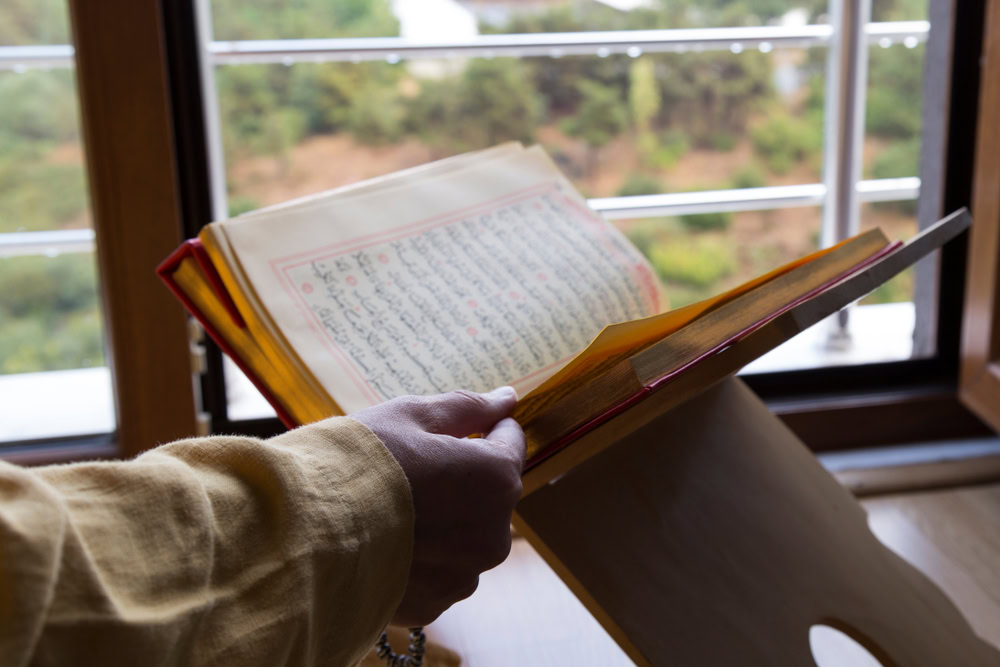Was Imam Ghazali against the Science of Kalam (Islamic Theology)?
Answered by Shaykh Dr. Muhammad Abu Bakr Badhib
Question
Was Imam Al-Ghazali against the science of Kalam (Islamic theology)?
Answer
In the name of Allah, and all praise is due to Allah, and blessings and peace be upon our master Muhammad, the Messenger of Allah, his Family, his Companions, and those who follow him.
The great Imam, Proof of Islam, Abu Hamid al-Ghazali (died 505 AH) (Allah have mercy on him and be pleased with him), was among those who contributed to the elaboration of several Islamic sciences, such as Fiqh (Islamic jurisprudence), Usul (Islamic Legal Theory), and the science of ‘Aqida, known as Kalam (Theology – Scholastic Theology), as well as philosophy and logic.
He was not opposed to these sciences; rather, he authored works, verified them, and was well-versed in their intricacies.
To elaborate, Imam Ghazali was one of the great Islamic scholars whose fame spread widely, and his knowledge and understanding were extensively recognized.
I will not delve deeply into narrating his biography, virtues, and contributions, as there are separate books and volumes of biographies and the levels of Shafi‘i scholars overflowing with such information.
His contributions to the science of ‘Aqida alone include more than ten published works, excluding unpublished or unknown ones. Some of his most important works in this field include:
Qawa‘id al-‘Aqa’id (The Principles of the Creed);
Al-Iqtisad fi al-I‘tiqad (The Moderation in Belief);
Fada‘ih al-Batiniyya (Infamies of the Batinies);
Al-Maqsad al-Asna fi Sharh Asma’ Allah al-Husna (The Noblest Aim in Explaining the Beautiful Names of Allah);
Iljam al-Awam ‘an ‘Ilm al-Kalam (Saving Muslims from Speculative Theology);
Al-Risala al-Qudsiyya (The Holy Treatise);
Al-Qistas al-Mustaqim (The Just Balance), and others.
All these are independent works, except for the first one (Qawa‘id al-‘Aqa’id), which is derived from his magnum opus book, “Ihya’ ‘Ulum al-Din” (Revival of the Religious Sciences). Later, the great scholar Sidi Ahmad Zarruq, among others, explained it.
These works are filled with remarkable investigations in the science of ‘Aqida (creed) and Kalam (Islamic theology), and Imam Ghazali excelled in presenting theological material, as was his custom in his writings. Thus, everyone who followed him depended heavily on him and his works due to their excellent organization, depth, and arrangement.
Knowing this and recognizing Imam Ghazali’s contribution to the science of ‘Aqida, how can it then be said that he was against the science of Kalam? Indeed, he has statements that warn against and deter from the science of Kalam, but these must be understood in their context and circumstance.
He explicitly stated in one of his books that the science of Kalam is forbidden, at other times he stated it was obligatory, sometimes a communal obligation (fard kifaya), and at other times an individual obligation (fard ‘ayn). His statement about its prohibition applies to laypeople due to the severe harm it can cause them.
In contrast, the individual obligation applies to those affected by heretical beliefs that cannot be refuted except through engaging in this science. It is a communal obligation upon scholars and their students to ward off innovators’ harm and protect the Islamic creed from foreign thoughts. In other instances, it is recommended or permissible.
This is the summary of the response to this question. It is important for researchers and those seeking knowledge not to listen to doubts cast upon them that discourage any Islamic science and to seek the truth in all their affairs. [1]
May Allah grant us success and guide us to the right path.
[Shaykh] Dr. Muhammad Abu Bakr Badhib
Shaykh Dr Muhammad Abu Bakr Badhib is a prominent Islamic scholar from Yemen born in Shibam, Hadhramaut, in 1976. He received his degree in Shari‘a from Al-Ahqaf University, a master’s degree from the Islamic University of Beirut, and a PhD in Usul al-Din from Aligarh Muslim University (AMU).
He studied under great scholars such as Shaykh al-Habib Ahmad Mashhur al-Haddad, Shaykh Fadl Ba‘ fadl, Habib Salim al-Shatiri, Habib Ali Mashhur bin Hafeez, and others. He has served as the Director of Publications at Dar al-Fiqh, the former Deputy Director of Cultural Relations at Al-Ahqaf University, a former Assistant for Employee Affairs at Atiyah Iron Company, a researcher at the Sunna Center affiliated with the Dallah al-Baraka Foundation, and a researcher at Al-Furqan Foundation’s Makka al-Mukarrama and Madina al-Munawwara Encyclopedia branch.
Currently, he is a researcher at Al-Furqan Foundation’s Makka al-Mukarrama and Madina al-Munawwara Encyclopedia branch, teaches traditionally through the Ijaza system at Dar al-Fuqaha in Turkey, supervises the Arabic department at Nur al-Huda International Institute (SeekersGuidance), and is a member of the Board of Trustees of the Manuscript House in Istanbul.
His works include “The Efforts of Hadhramaut Jurists in Serving the Shafi‘i School,” “Contributions of Hadhramaut Scholars in Spreading Islam and its Sciences in India,” “Hada’iq al-Na‘im in Shafi‘i Fiqh,” in addition to verifying several books in Fiqh, history, the art of biographies, and Asanid (chains of narration).
